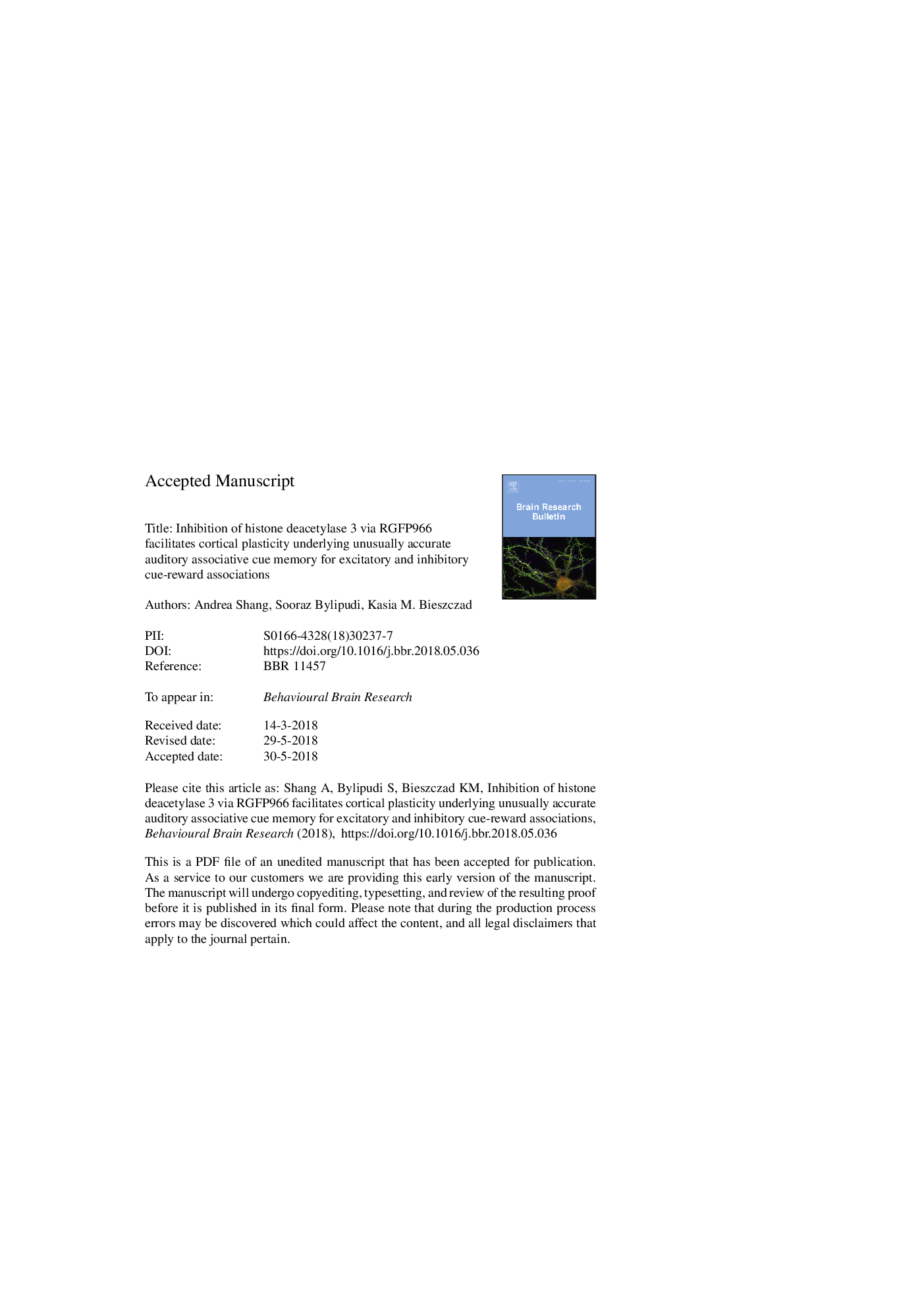| Article ID | Journal | Published Year | Pages | File Type |
|---|---|---|---|---|
| 11031786 | Behavioural Brain Research | 2019 | 62 Pages |
Abstract
Epigenetic mechanisms are key for regulating long-term memory (LTM) and are known to exert control on memory formation in multiple systems of the adult brain, including the sensory cortex. One epigenetic mechanism is chromatin modification by histone acetylation. Blocking the action of histone de-acetylases (HDACs) that normally negatively regulate LTM by repressing transcription has been shown to enable memory formation. Indeed, HDAC inhibition appears to facilitate memory by altering the dynamics of gene expression events important for memory consolidation. However, less understood are the ways in which molecular-level consolidation processes alter subsequent memory to enhance storage or facilitate retrieval. Here we used a sensory perspective to investigate whether the characteristics of memory formed with HDAC inhibitors are different from naturally-formed memory. One possibility is that HDAC inhibition enables memory to form with greater sensory detail than normal. Because the auditory system undergoes learning-induced remodeling that provides substrates for sound-specific LTM, we aimed to identify behavioral effects of HDAC inhibition on memory for specific sound features using a standard model of auditory associative cue-reward learning, memory, and cortical plasticity. We found that three systemic post-training treatments of an HDAC3-inhibitor (RGPF966, Abcam Inc.) in rats in the early phase of training facilitated auditory discriminative learning, changed auditory cortical tuning, and increased the specificity for acoustic frequency formed in memory of both excitatory (S+) and inhibitory (Sâ) associations for at least 2 weeks. The findings support that epigenetic mechanisms act on neural and behavioral sensory acuity to increase the precision of associative cue memory, which can be revealed by studying the sensory characteristics of long-term associative memory formation with HDAC inhibitors.
Related Topics
Life Sciences
Neuroscience
Behavioral Neuroscience
Authors
Andrea Shang, Sooraz Bylipudi, Kasia M. Bieszczad,
